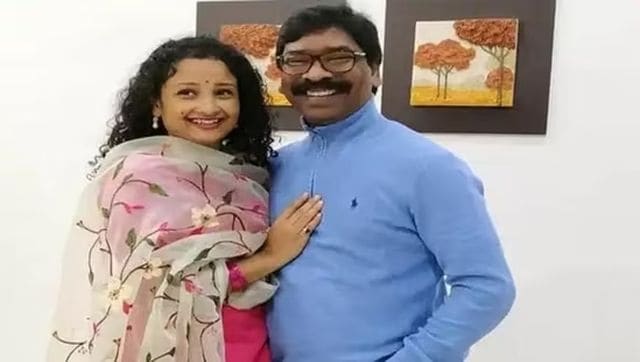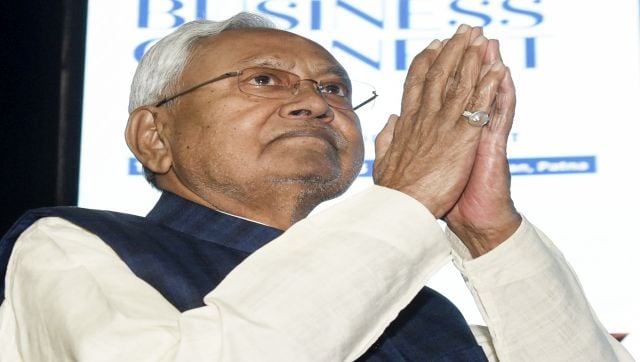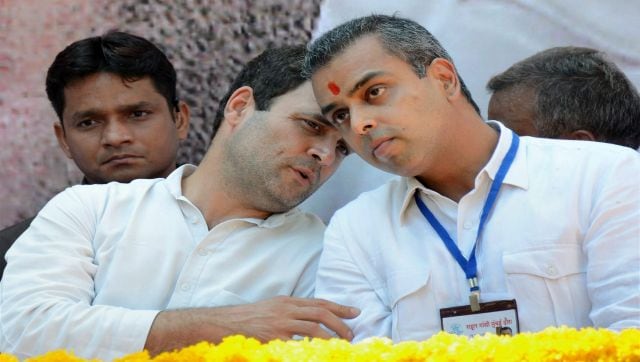Amit Shah has been giving a lot of interviews and tackling a wide range of questions from media. In each of the interviews, what shines through is Shah's ideological clarity and confidence in the party's national dominance and upward trajectory. The former is a necessary condition for the latter. The Union home minister is a consummate politician. Shah appears clear-eyed about his goals and goes all out to achieve them. If the goal is met, he moves on to the next. If not, he doesn't rest. He appears dispassionate in both success and failure.
A hard taskmaster, the BJP national president is relentless but doesn’t make a virtue out of his work ethic. Shah doesn’t have Narendra Modi's oratorical flourish or his flamboyance, but his understated style, pragmatism, administrative acumen, deep organisational connect and obsessive commitment towards the party makes him the prime minister’s perfect foil. At their core, both Modi and Shah are similar in nature — activists who share a grand vision for India.
Some of these qualities reflected in the interview he gave to Network 18 Group Editor-in-chief Rahul Joshi on Thursday. Shah didn't avoid answering tricky questions. He gave candid replies to direct questions on most topics except a few where he refused to comment. But even in evasion, he was unequivocal. There's an innate honesty in Shah's approach, a sort of conscious shunning of smart-alecky that defines an amateur politician like Rahul Gandhi.
For example, let’s take the question on Shah’s prediction on West Bengal, where Assembly elections are due in 2021. Shah expressed confidence that the BJP will win with a two-thirds majority. “My prediction says the BJP will form the government in Bengal with a two-thirds majority,” Shah told News18 in the interview, adding that the media was sceptical when he had predicted around 20 seats for BJP in 2019 Lok Sabha elections. The BJP bagged 18.
"We have already won 18 seats and in three we lost with a margin of 5,000-7,000 votes even after so much violence and rigging. At that time the people of Bengal had doubts whether the BJP will win or not. Now, this doubt is no longer there in the minds of the people as the BJP has won 18 seats."
But Shah wasn’t ready to commit on the vexed question of a credible face in West Bengal BJP to take on chief minister Mamata Banerjee. He stonewalled the probing on Sourav Ganguly amid a buzz that the newly minted BCCI president could be BJP’s best bet but left the door slightly ajar for speculation in the future. On persistent questioning whether Ganguly or Mukul Roy, who walked over from the Trinamool Congress, could be BJP’s chief ministerial face, Shah replied: "There is a lot of time left for the elections right now. At that time, the party will decide whether we want to present a face to the people or we want to fight the elections in the name of the party."
It might appear as if Shah was being evasive, but a look at BJP’s electoral approach under Shah makes it clear that he was being objective. Where the BJP has a credible and popular local face, it has never hesitated in stitching a campaign around that leader — for instance, Sarbananda Sonowal was projected as the CM-face. But in Uttar Pradesh, where the party had no leader to take on the likes of Akhilesh Yadav and Mayawati, BJP took a conscious decision not to project a face and centre the campaign around Modi and his popularity.
The point is that Shah was being objective, and this objectivity is the hallmark of his politics. We see the same strain running through on the issue of Maharashtra election where the BJP national president ruled out yielding the chief minister's post to alliance partner Shiv Sena, but admitted that the post for deputy chief minister is a matter of negotiation.
Though, as the interviewer pointed out, that Sena has projected party chief Uddhav Thackeray’s son Aditya as the CM-face, Shah said: "It is very clear that in the new government, Devendra Fadnavis from the BJP will become the chief minister," and on the issue of deputy CM, "Fadnavis and his team will decide this after looking at the results. The parliamentary board of the BJP will then take a call."
Shah, to rest all speculation on this topic, he was quick to stress that the negotiation and tension between alliance partners — both of whom face the pulls and pressures of expansion, is a sign of "healthy alliance", a point he repeated while answering a question on BJP’s relationship with Bihar chief minister Nitish Kumar. And yet, while allowing Sena the space for competitive cooperation, Shah made it clear that BJP has the capability of reaching 164-mark on its own.
It has been said that BJP’s expansionism has made it difficult for it to work with allies. Yet statistics do not support this contention. The NDA alliance is working well at the Centre even though BJP has enough numbers to run a government on its own, and the party has shown a willingness to take its partners along even as local tensions between alliance members exist. Shah clarified that Nitish Kumar’s JD(U) will remain BJP’s partner in Bihar and “difference in views have not turned into major issues”.
The ideological clarity in Shah’s thinking is evident on the crucial questions that the Indian state is grappling with — abrogation of Article 370 in Jammu and Kashmir and National Register for Citizens. To take the NRC issue first much has been made of the Citizenship Amendment Bill that Shah has promised to bring first before NRC is implemented further. The CAB is aimed at making India the "natural home for all minorities" including Hindus, Christians, Buddhists and Jains but Muslims have not been mentioned. Critics and the Opposition see this as BJP’s majoritarian agenda. What is missing from this criticism — and we shall hear more debates on this aspect as state elections near — is the context.
According to Shah, "if minorities from Afghanistan, Pakistan and Bangladesh come here to save their lives from persecution then they are refugees, not illegal immigrants. If someone comes here illegally to earn a livelihood or to disrupt law and order, then they are intruders.” He clarifies that it doesn’t imply that all Muslims are intruders but "it is not possible for them to be religiously persecuted. During Partition, there were 30 percent Hindus in Pakistan. Now 6 percent are left. Where did they go?”
The fact that India remains the only land for an ancient, non-proselytizing religion and Hindus face religious persecution from Islamic and Christian expansionism is undeniable. This context is usually forgotten while drawing a false equivalence between “all faiths” when it comes to the CAB or NRC.
On the question of conferring Bhara Ratna on Vinayak Damodar Savarkar, which has been the subject of a heated and polarising debate, Shah’s ideological clarity is once again evident. He isn’t defensive about rewriting history because he acknowledges that history is written by victors, and by that metric, India’s past needs to be revised and revisited to adjust and correct historical wrongs.
“It is my request to all that there is a need to rewrite the Indian history from India’s point of view but without blaming anyone… How long are we going to blame the British? We don’t have to dispute anyone, only write what is true and it will stand the test of time,” the Union home minister said while addressing a seminar at Banaras Hindu University (BHU).
Much has been said about BJP’s need to reinstate Savarkar in the pantheon of greats as the party’s desperate attempt to earn ‘legitimacy’ in the movement for Independence, but missing in this debate is the acknowledgement of the fact that these are conducted in a vacuum. For a robust debate on the place of Savarkar in India’s history, there is a need for reevaluation of his contribution, but the airbrushing of history by Marxist and Congress-patronised historians has made it impossible for a holistic debate.
It is in this context that we must see Shah’s statement in the News18 interview that “People who are arguing with the legacy of Savarkar are playing with the history of the country. They are committing the sin of not letting people take inspiration from Savarkar.”
For all his conviction and clarity, however, Shah tackles politics from the mindset of an activist — with a single-minded focus on meeting objectives. This is why he will be never found indulging in idle debates and controversies of the kind his party colleagues frequently find themselves in. For instance, Union minister Piyush Goyal has called Nobel laureate Abhijit Banerjee (reportedly one of the architects of Congress’s Nyay scheme) “left-leaning” and that people of the country has “rejected” Banerjee’s ideas.
#WATCH Piyush Goyal:Abhijit Banerjee ji ko nobel prize mila main unko badhai deta hun.Lekin unki samajh ke bare me to aap sab jaante hain.Unki jo thinking hai,wo totally left leaning hai.Unhone NYAY ke bade gungaan gaye the,Bharat ki janta ne totally reject kar diya unki soch ko pic.twitter.com/v7OO49ie5E
— ANI (@ANI) October 18, 2019
BJP’s national secretary Rahul Sinha has mocked Banerjee by saying “those people whose second wives are foreigners are mostly getting the Nobel prize. I don’t know whether it is a degree for getting the Nobel,” cocking a snook also at another Nobel laureate from India — Amartya Sen.
Yet Shah, when asked a provocative question on Raghuram Rajan criticizing Modi government’s handling of economy, says: “I don't want to comment on Raghuram Rajan's remarks. I don't want to invite controversy. But I want to say that policy-making is the work of select representatives and Parliament.”
This might make for a staid and non-colourful quote, but it is not Shah’s responsibility to help the media sell copies, earn TRPs or traffic. This focus on objective at all times, one of the lessons of Chanakya neeti, defines Shah and forms the backbone of his electoral success.
October 19, 2019 at 02:22PM









No comments:
Post a Comment